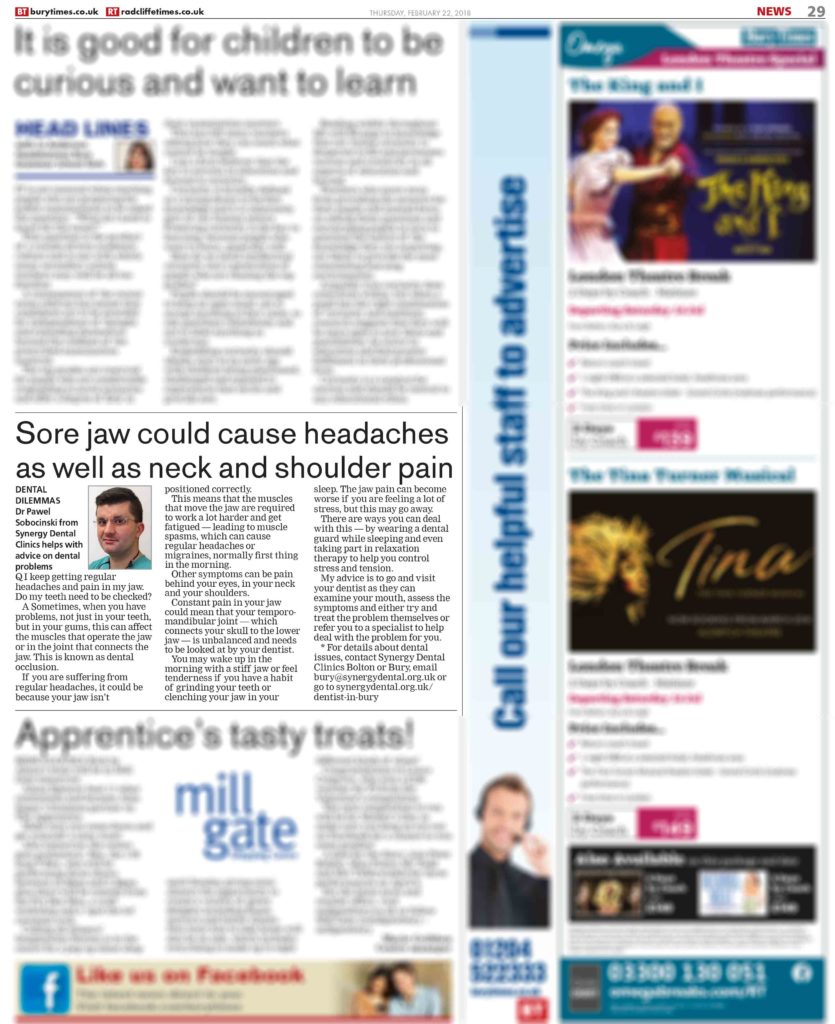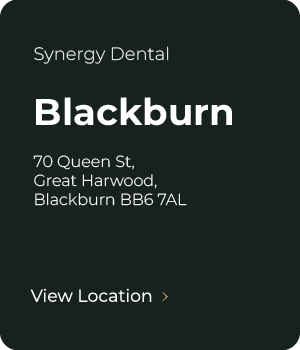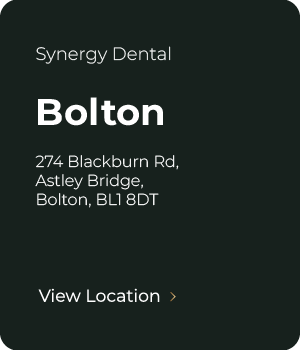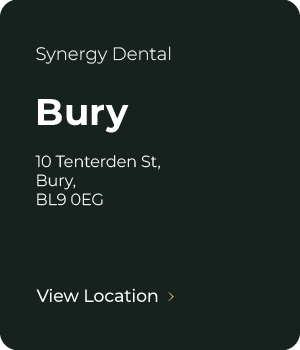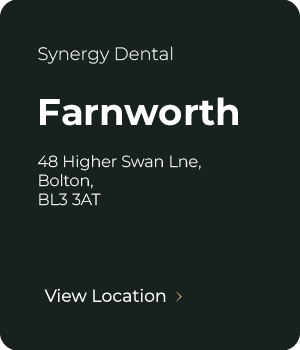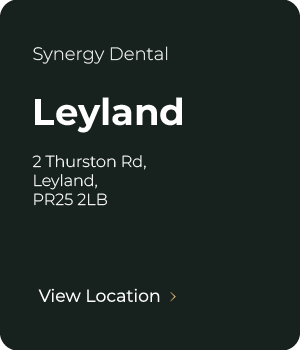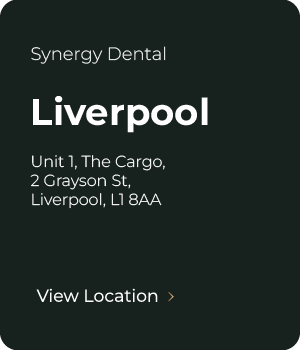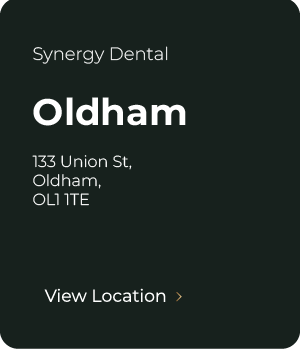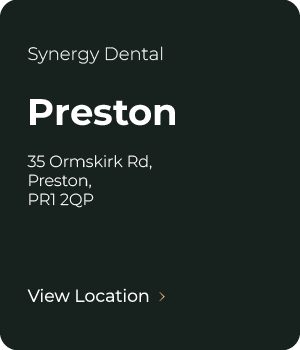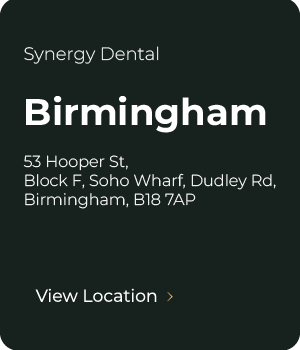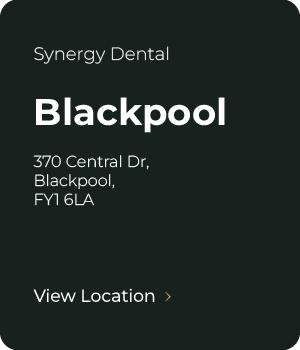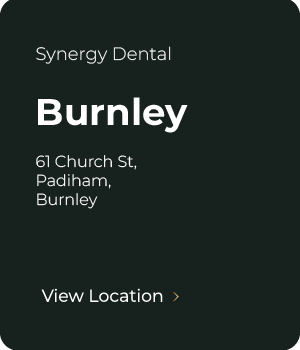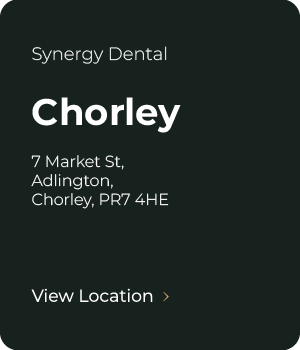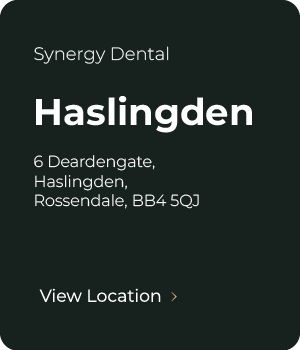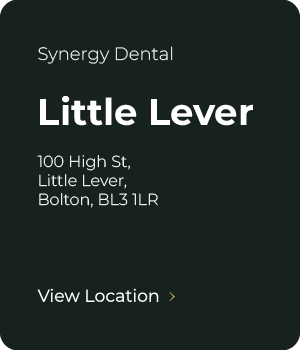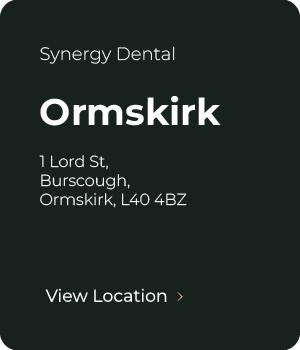Q. I keep getting regular headaches and pain in my jaw. Do my teeth need to be checked?
A. Sometimes, when you have problems, not just in your teeth, but in your gums, this can affect the muscles that operate the jaw or in the joint that connects the jaw. This is known as dental occlusion. If you are suffering from regular headaches, it could be because your jaw isn’t positioned correctly.
This means that the muscles that move the jaw are required to work a lot harder and get fatigued — leading to muscle spasms, which can cause regular headaches or migraines, normally first thing in the morning. Other symptoms can be pain behind your eyes, in your neck and your shoulders.
Constant pain in your jaw could mean that your temporomandibular joint — which connects your skull to the lower jaw — is unbalanced and needs to be looked at by your dentist. You may wake up in the morning with a stiff jaw or feel tenderness if you have a habit of grinding your teeth or clenching your jaw in your sleep.
The jaw pain can become worse if you are feeling a lot of stress, but this may go away. There are ways you can deal with this — by wearing a dental guard while sleeping and even taking part in relaxation therapy to help you control stress and tension.
My advice is to go and visit your dentist as they can examine your mouth, assess the symptoms and either try and treat the problem themselves or refer you to a specialist to help deal with the problem for you.
* For details about dental issues, contact Synergy Dental Clinics Bolton or Bury, email bury@synergydental.org.uk or go to https://local.synergydental.org.uk/synergy-dental/dentist-in-bury/
